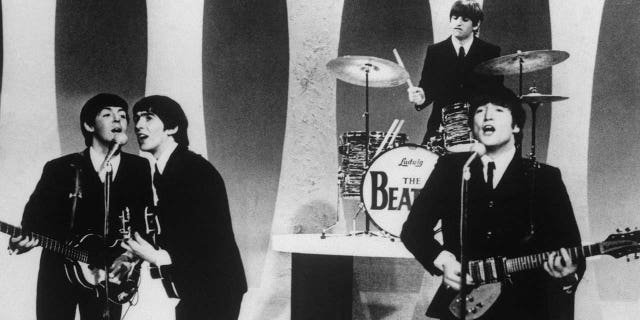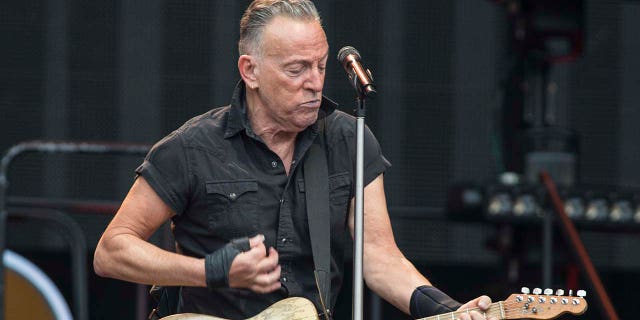Paul McCartney says musicians today are expected to perform much longer concerts than the Beatles did in the 1960s, and he appears to blame Bruce Springsteen for it.
“These days it’s pretty much the main act and there might be a warmup act,” McCartney recently told Conan O’Brien on his “Conan O’Brien Needs a Friend” podcast. Sir Paul said “nobody” did long sets during the Beatles’ time because there were so many other acts in a show.
“Now, people do three, four hours. I blame Bruce Springsteen. I’ve told him so. I’ve said, ‘It’s your fault,’” McCartney said.
The “Yesterday” singer, who has performed with Springsteen and regularly does longer shows as a solo artist, added, “You can’t now do an hour. We used to do a half hour. That was like the Beatles’ thing. Half an hour, and we got paid for it.”
PAUL MCCARTNEY ALMOST QUIT MUSIC AFTER THE BEATLES BROKE UP
Paul McCartney said Bruce Springsteen’s lengthy shows have pressured all musicians to perform longer concerts. (Samir Hussein/WireImage)
The legendary singer-songwriter said that promoters would ask comedians, “‘How long can you do? Four minutes? Can you do four minutes?’ And the guy would say, ‘Yeah,’ so they would do four. So, we thought, ‘Half an hour, that’s like epic.’
“But that was it. Big Beatles show. We were on and off like that. It didn’t seem strange.”
Fox News Digital has reached out to McCartney’s rep for comment.
CLICK HERE TO SIGN UP FOR THE ENTERTAINMENT NEWSLETTER
Springsteen admitted he “screwed the whole thing up by playing too f—— long” in an interview with O’Brien in 2020, agreeing the Beatles’ 30-minute concerts didn’t sound “so bad” when the comedian compared their show lengths with his.
“Now I have to do it,” he joked of setting the precedent for long concerts.

The Beatles did only 30-minute concerts, Paul McCartney said. (Getty)
McCartney also admitted recently he considered leaving music behind after the Beatles broke up in 1970.

Bruce Springsteen admitted he “screwed the whole thing up” by playing long shows. (Steve Thorne/Redferns)
“The main question I had was whether to keep going after the Beatles because it was a hard act — some might say, an impossible act — to follow,” the 81-year-old, who’s had a highly successful solo career, said in the most recent edition of his newsletter.
CLICK HERE TO GET THE FOX NEWS APP
“There’s a couple of times in life when you are forced into taking a risk. After the Beatles, this was my situation: ‘Do I keep going with music, or not?’” he wrote. “The risk paid off.”